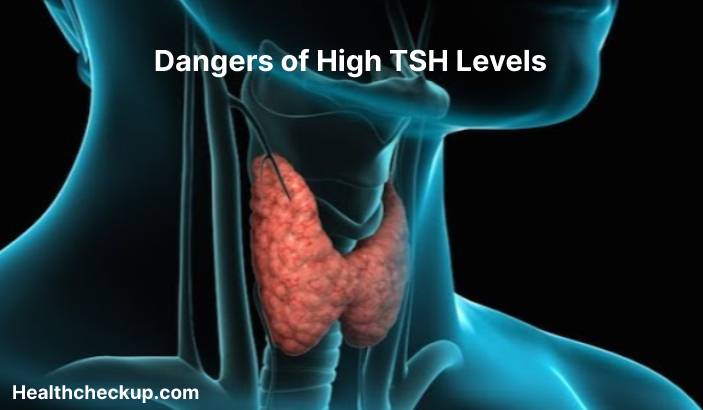Thyroid-stimulating hormone (TSH) is produced by the pituitary gland and acts as the trigger for the thyroid gland to produce hormones vital to regulating the body’s metabolism. These hormones have far-reaching effects, including control over heart rate, body temperature, and energy levels. A TSH level above 10 milli-international units per liter (mIU/L) in an adult is considered high and signals a potential deficiency in thyroid hormones – a condition known as hypothyroidism.
It’s worth noting that TSH levels can fluctuate and are impacted by stress, illness, or medication. So, doctors often perform multiple TSH tests and take into account other clinical signs and symptoms before making a final diagnosis.
A dangerously high TSH level, while usually indicative of hypothyroidism, is sometimes caused by other underlying health issues, such as an enlarged pituitary gland, a pituitary tumor, or an autoimmune disorder. In these cases, a high TSH level is only a symptom of a more severe problem, requiring additional testing and treatment.
If a TSH level is found to be dangerously high, the first step is to confirm the diagnosis through additional testing, including a free thyroxine (FT4) test. A low FT4 level confirms an underactive thyroid, and treatment with levothyroxine – a synthetic form of the thyroid hormone thyroxine – becomes necessary.
The dose of levothyroxine is adjusted based on the patient’s TSH levels and symptoms, and regular monitoring is crucial to maintain the TSH level within normal range. Patients with hypothyroidism should expect to have their TSH levels monitored at least once a year, or more frequently if their symptoms change.
A TSH level above 10 mIU/L is a cause for concern and signals an underactive thyroid. Treatment with levothyroxine is necessary to correct the thyroid hormone deficiency and restore TSH levels to normal. Regular monitoring is essential to keep TSH levels within the normal range and to ensure the patient’s symptoms are under control. If you have any concerns about your TSH levels, don’t hesitate to consult with your doctor for appropriate testing and a personalized treatment plan.








